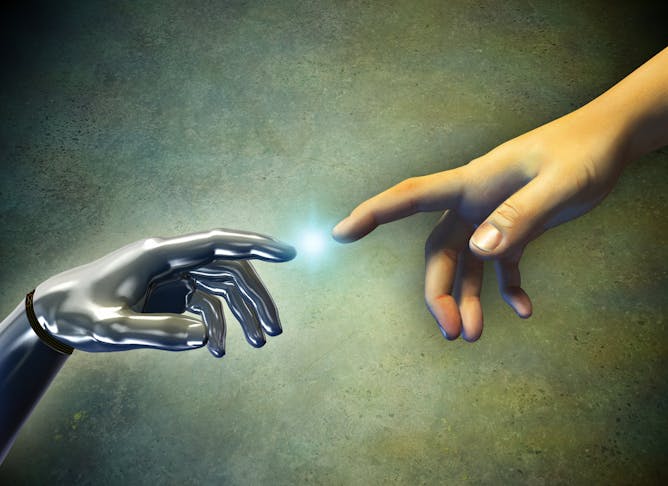|
Yesterday afternoon, OpenAI released GPT-4, the newest iteration of its chatbot, upgrading a technology that has captured the public’s imagination with its ability to compose essays, answer questions and converse with users.
Many have marveled at ChatGPT’s thoughtful, precise and uncannily human responses, with some even wondering if the technology can be thought of as sentient.
But to Nir Eisikovits, a scholar of ethics and public policy at UMass Boston, it doesn’t really matter whether this technology has a “mind of its own.” What does matter is that users will likely form real attachments to the technology. We already name our cars and our boats, feel a pang of sadness when trading in an old phone for a new one, and scream abuse at our GPS as if it could understand us.
The more lifelike AI technologies sound and look, the more likely it is we’ll form bonds with them. “The outlandish-sounding prospects of falling in love with robots, feeling a deep kinship with them or being politically manipulated by them are quickly materializing,” Eisikovits writes.
Also today:
|

To what extent will our psychological vulnerabilities shape our interactions with emerging technologies?
Andreus/iStock via Getty Images
Nir Eisikovits, UMass Boston
Our tendency to view machines as people and become attached to them points to real risks of psychological entanglement with AI technology.
|
Economy + Business
|
-
Christopher Decker, University of Nebraska Omaha
The latest consumer prices report shows cost of living is still rising far above the Fed’s target. But don’t expect monetary policymakers to aggressively hike rates.
-
Brian P. McCullough, Texas A&M University
All those Cinderella stories, buzzer-beating finishes and wild cheering sections have a high price tag – for the climate.
|
|
Education
|
-
Kris Marsh, University of Maryland
A sociology professor uses the popular ‘Boondocks’ cartoon to explore contemporary issues of race in American society.
|
|
Politics + Society
|
-
Andrea Stanton, University of Denver
University students today are too young to remember the March 2003 start of the Iraq War, which has future foreign policy implications and changes how the conflict should be taught.
|
|
Health + Medicine
|
-
Elissa H. Patterson, University of Michigan; Jay Kayser, University of Michigan
An overreliance on medication as the first-line treatment for depression can lead some people to be labeled with treatment-resistant depression when there are other viable alternatives for relief.
|
|
Environment + Energy
|
-
Jerry Anderson, Drake University
A new study reveals wide disparities among state-issued Clean Water Act fines, and even among federal fines from regions to region. A law professor explains why it may be illegal.
|
|
Science + Technology
|
-
Chirag Shah, University of Washington
Searching the web with ChatGPT is like talking to an expert – if you’re OK getting a mix of fact and fiction. But even if it were error-free, searching this way comes with hidden costs.
-
Aditi Gurkar, University of Pittsburgh
Aging is a major risk factor for many chronic diseases. Figuring out what influences longevity and how to identify rapid agers could lead to healthier and longer lives for more people.
|
|